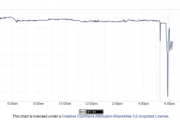Increased technology provides efficiency in data verification and validation of activities.
Blockchain technology is evolving to become an eventual element that could transform entire industries. It is perhaps best known for its ability to store massive, humanly unmanageable amounts of information. Blockchain also provides for the independent verification of data without a central, controlling party. This quality offers businesses both a higher level of precision and an increased ability to see the big picture in their operations. By storing and independently validating vast records of activities and transactions, companies will be able to maintain a more accurate chain of custody and eventually manage an increasing number of assets.
How Blockchain Could Change The Legal Profession
Practicing law used to be almost entirely about the ability to communicate and make a cohesive, logical argument. For some lawyers, that might continue to be the case. But for others, a rapidly increasing degree of technological literacy will be key for staying competitive in the field. It stands to reason that gaining access to the enormous amounts of data stored via blockchain might enhance law firms’ ability to discover hard evidence or contradictions in a case.
Blockchain could also make room for “smart contracts,” where assets would be transferred automatically once certain conditions are met. A system like this could resolve disputes very directly and efficiently, saving lawyers and their clients a great deal of work. This also could mean the end of escrow accounts where the law firm holds onto money and distributes funds once conditions have been met.
“The Internet forced attorneys to better understand copyright law,” Aaron Wright, associate clinical professor at Cardazo Law School and director of Cardazo Blockchain Project, said. “Similarly, blockchain will require a better understanding of securities law and an understanding of the underlying technology of smart contracts.”
Source/More: How Blockchain Will Transform Business And The Law




















